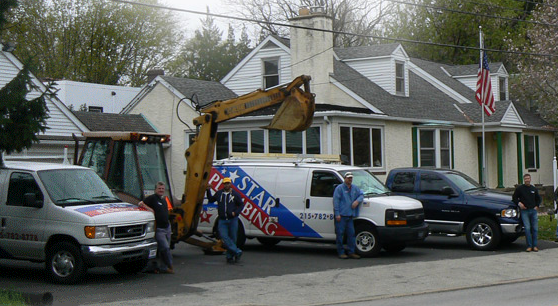Can I Use Plumbers Putty On Metal? – A Comprehensive Guide
Plumbers putty is a highly malleable material used to seal joints and prevent leaks in plumbing applications. It is most commonly used on plastic and ceramic surfaces, but can also be used on metal surfaces in certain situations. The key to using plumbers putty on metal is to make sure the surface is clean and free of any oils or other contaminants that could interfere with the putty’s ability to form a strong seal. Additionally, the metal should be primed with a corrosion-resistant primer before applying the putty. Once these steps have been taken, plumbers putty can be applied to a metal surface as it would any other surface.
What is Plumbers Putty?
Plumbers putty is a type of plumber’s sealant used in plumbing applications. It is a soft, malleable material that can be shaped to form a seal or gasket between two surfaces. Plumbers putty can be used on metal, plastic, ceramic, and other materials, and it has many benefits over other sealants. The components of plumbers putty are usually made up of petroleum or vegetable oils and mineral fillers such as talc, clay, or limestone. These components give plumbers putty its unique properties that make it ideal for use in sealing pipes and fixtures.
The main benefit of using plumbers putty is its flexibility. It can be easily applied to any surface without the need for additional tools or techniques. It also creates a strong water-resistant seal that will last for many years with minimal maintenance. Additionally, plumbers putty has a low odor and doesn’t emit any toxic fumes when applied, making it safe for use in most environments.
Can Plumbers Putty Be Used on Metal?
Yes, plumber’s putty can be used on metal surfaces. It is most commonly used to seal metal pipes and fixtures such as sinks and toilets in order to prevent water leaks around them. Plumber’s putty can also be used to form gaskets around doors and windows to keep out drafts or moisture.
What types of metals can be used with plumber’s putty? Generally speaking, any type of metal should work fine with plumber’s putty since it adheres well to most surfaces. This includes aluminum, stainless steel, brass, copper, and iron among others.
How to use plumber’s putty on metal effectively? Before applying the putty to the metal surface it is important to clean the area thoroughly with an abrasive cleaner such as steel wool or sandpaper in order remove any dirt or debris that may prevent the material from adhering properly. Once this is done apply a generous amount of the material evenly along the seam where you want the sealant applied. Use your finger or a tool such as a scraper or knife to press it into place firmly so that it forms an even layer around the edges of the metal surface you are trying to seal off from moisture or drafts.
Alternatives To Plumbers Putty For Metal Surfaces
There are many alternatives to plumber’s putty when it comes to sealing off metal surfaces from moisture or drafts such as adhesives and caulking compounds. Adhesives are typically more durable than plumber’s putties since they create an airtight bond between two surfaces which will last much longer than what you would get with just a simple application of plumber’s putties alone. Caulking compounds are also another option which come in liquid form and provide more flexibility than adhesives due their ability to stretch without breaking apart over time when exposed to changes in temperature or pressure levels within your home environment.
Other Uses For Plumbers Putty
Plumber’s putties not only have many uses for sealing off pipes and fixtures but they can also be used for other tasks such as sealing doors and windows against drafts as well as stopping minor leaks around sinks, toilets and tubs which would otherwise require more extensive repairs if left unchecked over time.
Common Problems With Using Plumbers Putty On Metal Surfaces
One common problem associated with using plumber’s putties on metal surfaces is reapplication which could become necessary after some time due its tendency not last indefinitely when exposed repeatedly changes in temperature or pressure over time which could cause it break down prematurely if not monitored carefully enough by homeowners themselves on regular basis throughout year depending how often these areas get exposed those elements during seasons throughout year respectively . Another problem could arise from contamination porous surfaces if not cleaned thoroughly enough before application process begins resulting trapped air pockets inside material itself thus causing more difficulties getting proper adhesive bond between two materials being sealed together at same time .
Can I Use Plumbers Putty On Metal?
Plumbers Putty is a malleable material used by plumbers to seal joints and help prevent leaks. It is often used on metal surfaces such as sink drains, shower valves, and other fixtures. But can it be used on metal surfaces? The answer is yes, but it’s important to use the right type of putty and follow the proper steps in order to ensure a safe and secure seal.
Types of Plumbers Putty Available
There are two main types of plumber’s putty available: regular plumber’s putty and waterproof plumber’s putty. Regular putty is designed for general use on non-porous surfaces like ceramic tile or porcelain bathtubs, while waterproof putty is designed for use on metal surfaces like sink drains or shower valves. It’s important to choose the right type of plumber’s putty for your task in order to ensure a secure seal and prevent any potential leaks.
Tools Needed to Use Plumbers Putty on Metal
In order to use plumber’s putty on metal surfaces, you will need a few tools: a screwdriver or wrench, a pair of pliers, and a cleaning cloth. Make sure you have all the necessary tools before beginning your project as this will make the job much easier.
Preparing Metal Before Using Plumbers Putty
Before applying the putty, it’s important that you inspect and clean the metal surface thoroughly in order to ensure that there are no remaining contaminants which could compromise the seal once applied. Once clean, it can be helpful to sand or polish the surface in order to create an even more secure bond between the two materials.
Advantages of Using Plumbers Putty on Metal Surfaces
Using plumber’s putty has many advantages when working with metal surfaces: it’s cheap compared to other sealing materials; it’s easy to apply as it does not require mixing or specialized equipment; it forms an effective seal which can last for years; and most importantly, it does not corrode or react with any metals so there is no risk of damaging expensive fixtures over time.
Overall, using plumber’s putty on metal surfaces can be an effective way to create strong seals which will last for years without compromising your fixtures or equipment. Just make sure you choose the right type of putty for your task and take all necessary precautions when preparing the surface before application in order to ensure that everything is properly sealed up tight!
FAQ & Answers
Q: What is Plumbers Putty?
A: Plumbers Putty is a type of sealing compound used mainly by plumbers to seal joints and prevent leaks. It is a malleable material made up of clay, linseed oil, and other ingredients.
Q: What are the Components in Plumbers Putty?
A: The components in plumbers putty include clay, linseed oil, limestone, and other ingredients such as waxes, gums, and resins. These ingredients are mixed together to create a malleable material that can be used to seal around pipes and fixtures.
Q: What Are the Benefits of Using Plumbers Putty?
A: The main benefit of using plumbers putty is that it is an inexpensive material that can be easily applied to seal around pipes and fixtures. It also has excellent adhesion properties, making it ideal for use on metal surfaces. Additionally, it is highly durable and will not break down over time like some other types of sealants.
Q: Can Plumbers Putty Be Used on Metal Surfaces?
A: Yes, plumbers putty can be used on metal surfaces such as steel or brass. However, it should only be used in areas where there are no gaps or spaces between the metal surface and the putty itself. Also, make sure that the surface is clean before applying the putty to ensure a good bond between the two materials.
Q: What Other Uses Does Plumbers Putty Have?
A: Besides being used for sealing pipes and fixtures around your home or business, plumber’s putty also has other uses such as stopping minor leaks in doors and windows or creating a watertight seal when installing bathtubs or sinks. It can also be used to fill cracks in concrete or brick walls before painting them.
In conclusion, plumbers putty can be used on metal surfaces with caution. It may be difficult to apply and not provide a watertight seal, so it is important to understand the limitations of the material before use. It is best used for projects that involve non-pressurized applications or when there is no potential for water leakage. If you choose to use it, make sure you follow the instructions carefully and test the seal before using it in a real-world situation.
Author Profile

-
Star Plumbing, located in Elkins Park, PA, is a full-service plumbing company owned and operated by Mitchell Gordon. Since its inception, Star Plumbing has been providing its customers with reliable, quality plumbing services.
The Star Plumbing website offers informative articles on DIY plumbing and plumbing equipment, offering readers helpful advice and tips on how to take care of their own plumbing needs. This is a great resource for those who are looking to tackle a plumbing project themselves, as it provides useful information and advice on how to safely and successfully complete a plumbing job. Additionally, the website provides detailed descriptions of the various plumbing tools and equipment that are available, as well as detailed instructions on how to use them.
Star Plumbing’s website is a great resource for anyone with plumbing needs. Whether a customer is looking for advice on how to take care of their own plumbing or to schedule service from Star Plumbing, the website offers helpful advice and information for all their plumbing needs.
Latest entries
- April 12, 2024Plumbing Equipment And AccesoriesI Tested And Ranked The Best 10 Inch Rough In Round Toilet: And Here’s What I Found
- April 12, 2024Plumbing Equipment And AccesoriesI Tested And Ranked The Best Stone That Cleans Toilets: And Here’s What I Found
- April 12, 2024Plumbing Equipment And AccesoriesI Tested And Ranked The Best Heat Tape For Plumbing: And Here’s What I Found
- April 12, 2024Plumbing Equipment And AccesoriesI Tested And Ranked The Best Kaboom Toilet Bowl Tablets: And Here’s What I Found
